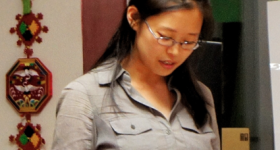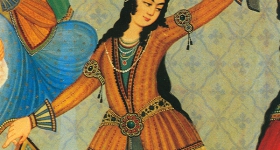Photo by Brandon Doran/Flickr
When
I asked my mother the date of her birthday, she replied, “I was a born in a
year with two Augusts.”
How
strange, how suspicious her answer seemed. Why couldn’t she tell me the date listed on her driver’s license? I would come to learn that the Chinese lunar
calendar has occasional leap years -- such as the year she was born -- which adds
a month to align the calendar. Converting her birthday from the Chinese to Western calendar was
complicated, no matter how simple the question seemed.
She
couldn’t easily name a date; her real birthday was not the same as the one
she’d used on official forms ever since she arrived in this country as a grad
student in the early 1960s. Her
birthday was lost somewhere over the International Date Line or perhaps the moment
she bought a chocolate bar, the first time she encountered a vending machine,
at the airfield in Oakland, CA.
When
I asked my father where he was born, sometimes he’d say Wuhan, and sometimes
he’d say Wuchang. Later, I realized his
city of birth had disappeared, absorbed into the metropolis of Wuhan. A place of origin, lost to history and urban
planning.
Yet
law-abiding Americans are supposed to have a fixed name, a fixed date and birthplace,
so goes the thinking behind Voter ID laws. Aliases are the realm of spies and criminals:
assassin Jason Bourne with his sheaf of passports, or a check forger with a
string of also-known-as on her police rap sheet.
As
NPR and AsianWeek recently reported, due to foreign name structure and
customs, the names of some Asian Americans might not match up between voting rolls
and the picture ID. Like the questions
of birthday and birthplace, asking immigrants their name can lead to more than
one answer. It depends, they might say: an Americanized name at the office, to
prevent customers and co-workers from mangling the syllables. A pet name, a nickname, used by family and within
their community. And a name for official
documents, often chewed up in the maw of standardized forms designed for
Western names. Surnames turned into
first names, hyphens added or deleted, syllables chopped off or turned into
middle initials, clerical errors that could deprive people of their right to
vote.
A
century ago, Angel Island Immigration Center began detaining primarily Chinese immigrants
who were held for months and years, interrogated and asked to prove, “Are you
who you say are?” The detainees carved poems in the wall, words that those so
eager to enact Voter ID laws might heed.
America has power, but not justice.
In prison, we were victimized as if we were guilty
Given no opportunity to explain, it was really brutal
I bow my head in reflection but there is nothing
I can do.
The
center closed in 1940, and the buildings abandoned. California State Park officials planned to
demolish the site until a ranger discovered the poems three decades later. The loss would have been irreplaceable --
irreplaceable as the loss of a name and the loss of a vote.










Comments